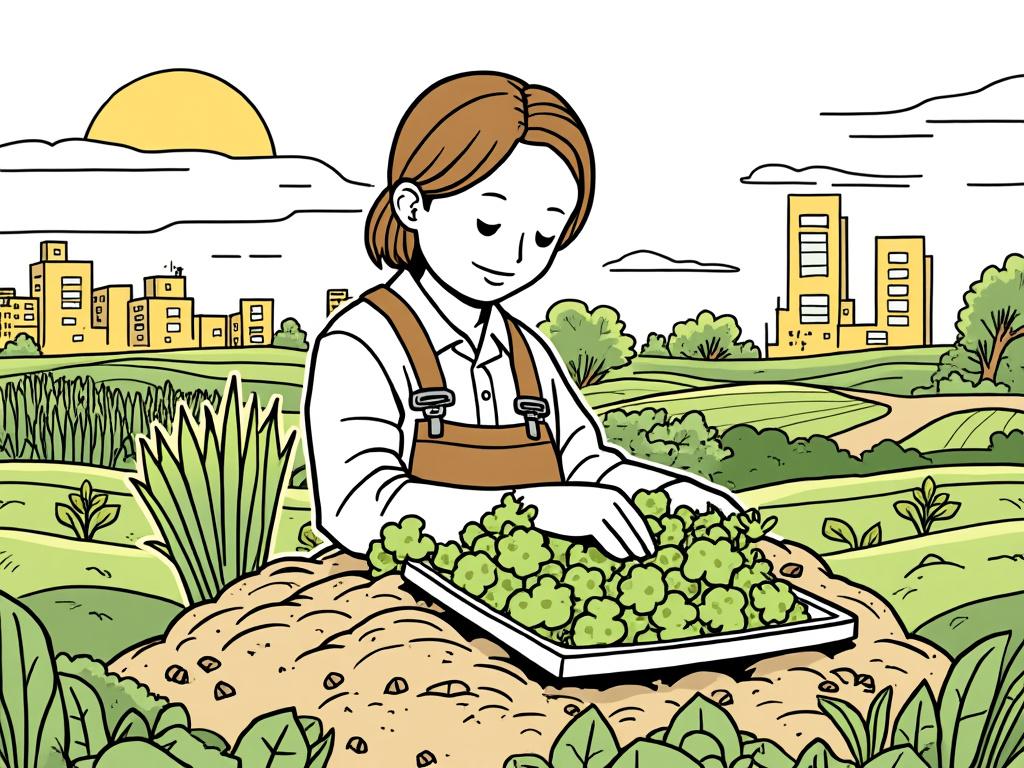
Greece’s Agricultural Revolution: From Ancient Traditions to Modern Innovation
Reading time: 12 minutes
Table of Contents
- Agricultural Landscape Overview
- Key Agricultural Sectors
- Modern Challenges and Solutions
- Technology and Innovation
- Economic Impact and Market Dynamics
- Sustainable Practices
- Your Agricultural Investment Roadmap
- Frequently Asked Questions
Greece’s Agricultural Landscape: Where Ancient Wisdom Meets Modern Opportunity
Ever wondered how a country smaller than Alabama feeds itself and exports agricultural products worth €6.2 billion annually? Greece’s agricultural sector tells a fascinating story of resilience, innovation, and untapped potential that’s capturing international attention.
Here’s the straight talk: Greece’s agriculture isn’t just about olive oil and feta cheese anymore. It’s evolving into a sophisticated, technology-driven industry that’s attracting smart investors and innovative farmers from across Europe.
Quick Reality Check: Despite occupying only 2% of the EU’s territory, Greece produces 12% of Europe’s cotton and ranks third globally in olive oil production. This isn’t just agricultural success—it’s strategic positioning in global markets.
The Numbers That Matter
Agriculture contributes approximately 4.1% to Greece’s GDP, employing over 480,000 people directly. But here’s what makes it interesting: the sector’s productivity has increased by 23% over the past decade, while many European countries struggle with declining agricultural output.
Agricultural Production Comparison by Region
85%
72%
68%
45%
32%
Percentage of total agricultural output by region (2023)
Key Agricultural Powerhouses: Beyond the Stereotypes
Let’s debunk some myths and dive into what’s really driving Greece’s agricultural economy. While olive oil remains crucial, the diversity might surprise you.
The Olive Oil Empire
Greece produces approximately 350,000 tons of olive oil annually, with 75% classified as extra virgin—the highest percentage globally. But here’s the kicker: small-scale producers are increasingly consolidating into cooperatives, improving quality control and market access.
Success Story: The Kalamata olive cooperative increased member incomes by 34% over three years by implementing direct-to-consumer sales channels and obtaining organic certifications.
Cotton: The Unexpected Champion
Greece is Europe’s only significant cotton producer, cultivating 250,000 hectares annually. The Thessaly region alone produces enough cotton to supply Greece’s entire textile industry, with surplus exported to Turkey and Egypt.
Emerging Opportunities
- Organic Farming: Growing at 15% annually, with demand far exceeding supply
- Greenhouse Cultivation: Particularly strong in tomatoes and cucumbers for export
- Wine Production: Premium varieties gaining international recognition
- Livestock: Focusing on quality over quantity, particularly in goat and sheep farming
Navigating Modern Agricultural Challenges: Practical Solutions
Every sector faces obstacles, and Greek agriculture isn’t exempt. But here’s what smart operators are doing to turn challenges into competitive advantages.
Challenge 1: Water Scarcity and Climate Adaptation
Mediterranean climate change is real, with rainfall patterns shifting and temperatures rising. Forward-thinking farmers are implementing:
- Precision irrigation systems reducing water usage by up to 40%
- Drought-resistant crop varieties developed by Greek agricultural research institutes
- Soil moisture monitoring using IoT sensors for optimal irrigation timing
Real Example: A citrus farm in Argolida reduced water consumption by 35% while increasing yield by 12% using smart irrigation technology paired with soil analysis.
Challenge 2: Market Access and Distribution
Traditional distribution channels often favor large producers, leaving smaller farms struggling for market access. Innovative solutions include:
| Strategy | Implementation Cost | ROI Timeline | Success Rate |
|---|---|---|---|
| Direct-to-Consumer Online | €2,000-€5,000 | 6-12 months | 78% |
| Farmers’ Market Networks | €500-€1,500 | 3-6 months | 85% |
| Cooperative Formation | €10,000-€25,000 | 12-24 months | 92% |
| Export Partnerships | €15,000-€40,000 | 18-36 months | 65% |
| Agritourism Integration | €8,000-€20,000 | 12-18 months | 73% |
Challenge 3: Labor Shortages and Aging Workforce
With average farmer age at 56 years, Greece faces a generational transition challenge. Smart solutions emerging include:
- Mechanization incentives reducing labor dependency by 60%
- Young farmer programs offering €25,000 startup grants
- Seasonal worker partnerships with neighboring countries
Technology Revolution: Greece’s Agricultural Digital Transformation
Forget the image of traditional Greek farming—today’s agricultural entrepreneurs are embracing cutting-edge technology with impressive results.
Precision Agriculture Takes Root
Greek farms are increasingly adopting precision agriculture technologies, with government subsidies covering up to 70% of implementation costs. Key innovations include:
Drone Technology: Over 1,200 Greek farms now use drones for crop monitoring, pest detection, and yield prediction. The technology has proven particularly effective in large olive groves, where traditional monitoring was labor-intensive and inconsistent.
Satellite Imagery Integration: The European Space Agency’s Copernicus program provides free satellite data that Greek farmers use for crop rotation planning and irrigation optimization.
Smart Greenhouse Revolution
Crete leads Europe in smart greenhouse technology adoption, with controlled-environment agriculture producing yields 300% higher than traditional methods. These facilities use:
- Automated climate control systems
- Hydroponic and aeroponic growing methods
- LED lighting systems optimized for specific crops
- AI-powered growth prediction models
Case Study: A 2-hectare smart greenhouse in Ierapetra, Crete, produces 450 tons of tomatoes annually—equivalent to what 15 hectares of traditional farming would yield, while using 90% less water.
Economic Impact: Numbers That Tell the Real Story
Agriculture’s economic influence extends far beyond farm gates, creating a ripple effect throughout Greece’s economy.
Export Performance
Agricultural exports reached €6.2 billion in 2023, representing 18% of total Greek exports. Key destinations include:
- Germany: €1.4 billion (primarily olive oil, wine, and fresh produce)
- Italy: €890 million (cotton, citrus fruits, and processed foods)
- France: €720 million (specialty products and organic foods)
- United States: €510 million (premium olive oil and wine)
Regional Economic Development
Rural areas dependent on agriculture show remarkable economic resilience. Thessaly, Greece’s agricultural heartland, maintains unemployment rates 2.3 percentage points below the national average, directly attributable to agricultural employment and related services.
For investors considering Greece’s agricultural potential, the sector offers unique advantages. Many international buyers are exploring opportunities in Greek agricultural land, particularly for organic farming and agritourism ventures. Those interested in broader investment opportunities can explore property for sale greece to understand the complete landscape of agricultural and rural investment possibilities.
Sustainable Practices: Building Tomorrow’s Agriculture Today
Greece is positioning itself as a leader in sustainable agriculture, with practices that benefit both environment and profitability.
Organic Certification Surge
Organic farmland increased by 156% over the past decade, now covering 542,000 hectares. This growth is driven by:
- Premium pricing—organic products command 30-80% higher prices
- EU subsidies supporting organic transition
- Growing consumer demand in export markets
- Reduced input costs after transition period
Carbon Sequestration Programs
Greek farmers participate in EU carbon credit programs, earning additional income while improving soil health. Regenerative agriculture practices are showing promising results, with participating farms reporting:
- 25% improvement in soil organic matter over 5 years
- Reduced fertilizer costs by 35%
- Additional income of €150-€400 per hectare from carbon credits
Water Conservation Leadership
Greece has become a testing ground for water-efficient agriculture, with innovations being exported to other Mediterranean countries. Key achievements include:
- Deficit irrigation techniques reducing water use by 20-30% without yield loss
- Rainwater harvesting systems providing 40% of irrigation needs in some regions
- Recycled wastewater use for irrigation in pilot programs
Your Agricultural Investment Roadmap: Strategic Next Steps
Ready to capitalize on Greece’s agricultural transformation? Here’s your practical action plan for entering this dynamic market:
Immediate Actions (Next 30 Days)
- Market Research Deep Dive: Identify your target crop or livestock sector using current export data and EU demand forecasts
- Financial Planning: Calculate startup costs including land acquisition, equipment, and certification expenses—budget 15-20% above initial estimates
- Regulatory Compliance Check: Contact the Greek Ministry of Agriculture for current subsidy programs and certification requirements
Short-term Strategy (3-6 Months)
- Location Scouting: Focus on Thessaly for cereal crops, Peloponnese for olives and citrus, or Crete for greenhouse operations
- Technology Integration Planning: Evaluate precision agriculture tools and smart farming solutions relevant to your chosen sector
- Partnership Development: Connect with local cooperatives, suppliers, and distribution networks
Long-term Vision (1-3 Years)
- Sustainability Certification: Plan your path to organic or other premium certifications
- Market Diversification: Develop both domestic and export channels
- Innovation Adoption: Stay ahead of technological trends and climate adaptation strategies
Pro Tip: Success in Greek agriculture isn’t just about farming—it’s about understanding the intersection of tradition, technology, and international markets. The farmers thriving today are those who respect the land’s heritage while embracing modern efficiency.
Consider this: As climate change reshapes Mediterranean agriculture and EU policies increasingly favor sustainable practices, Greece’s agricultural sector stands at a unique inflection point. Will you be part of the transformation that defines the next decade of European farming?
Frequently Asked Questions
What are the startup costs for beginning agricultural operations in Greece?
Startup costs vary significantly by sector and scale. Small-scale organic vegetable farming might require €15,000-€30,000 including land lease, basic equipment, and certification. Larger operations like olive groves need €40,000-€80,000 per hectare for establishment, but EU subsidies can cover 40-70% of initial investments for qualifying projects. Always factor in working capital for at least two growing seasons.
How do EU agricultural subsidies work for Greek farmers?
The Common Agricultural Policy (CAP) provides direct payments of approximately €180-€350 per hectare annually, depending on crop type and region. Additional subsidies are available for organic conversion (€500-€900 per hectare), young farmer startup grants (up to €25,000), and equipment modernization (50-70% cost coverage). Applications are processed through the Greek Payment and Control Agency for Guidance and Guarantee Community Funds (OPEKEPE).
What are the most profitable agricultural sectors in Greece currently?
Organic olive oil production offers the highest profit margins, with premium products selling for €8-€15 per liter compared to €3-€5 for conventional oil. Greenhouse tomato cultivation in Crete generates €25,000-€35,000 per hectare annually. Wine production from indigenous grape varieties is increasingly profitable, with boutique wineries achieving 200-400% markup on production costs. Agritourism integration can add 30-50% additional revenue to traditional farming operations.

Article reviewed by Charlotte Ellsworth, Commercial Real Estate Developer | Transforming Urban Landscapes, on June 4, 2025




